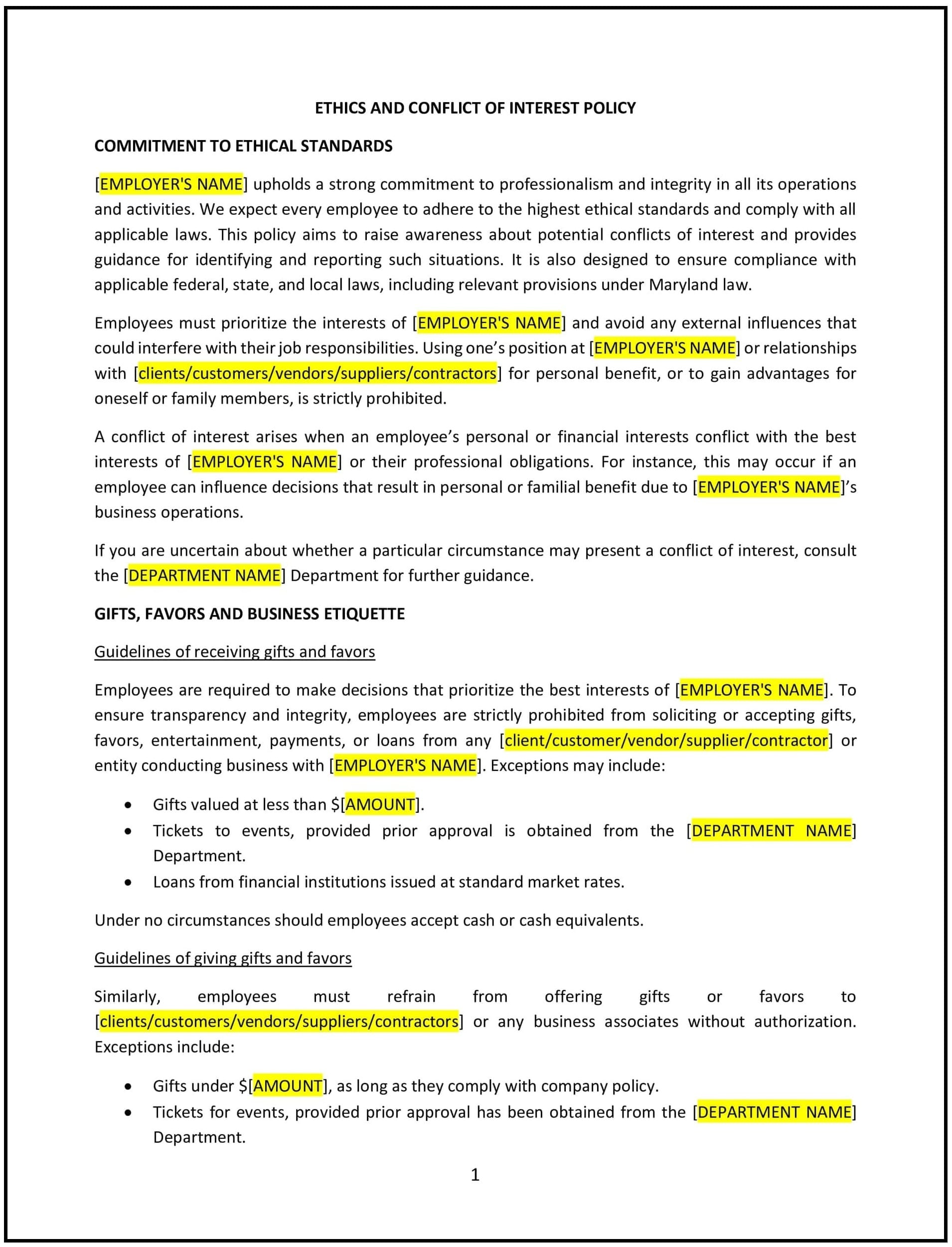Ethics and conflict of interest policy (Maryland): Free template
Got contracts to review? While you're here for policies, let Cobrief make contract review effortless—start your free review now.

Customize this template for free
Ethics and conflict of interest policy (Maryland)
This ethics and conflict of interest policy is designed to help Maryland businesses uphold integrity, transparency, and ethical behavior in all operations. It outlines guidelines for identifying, disclosing, and addressing conflicts of interest while promoting a culture of accountability.
By adopting this policy, Maryland businesses can ensure ethical decision-making, protect their reputation, and foster trust among employees, clients, and stakeholders.
How to use this ethics and conflict of interest policy (Maryland)
- Define ethical expectations: Clearly outline the principles of ethical conduct expected from employees, including honesty, fairness, and respect.
- Identify potential conflicts: Provide examples of conflicts of interest, such as personal relationships, financial interests, or outside employment that may interfere with business decisions.
- Establish disclosure procedures: Specify how employees should disclose potential conflicts, including forms or reporting channels.
- Detail resolution processes: Outline the steps for assessing and addressing disclosed conflicts to ensure fairness and transparency.
- Address confidentiality: Emphasize the importance of safeguarding sensitive information related to conflicts or ethical concerns.
- Include disciplinary measures: State the consequences for violating the policy, such as warnings, suspension, or termination.
- Reflect Maryland-specific considerations: Incorporate state laws and industry standards related to ethics and conflicts of interest.
Benefits of using this ethics and conflict of interest policy (Maryland)
Implementing this policy provides Maryland businesses with several advantages:
- Promotes integrity: Encourages ethical behavior and decision-making across the organization.
- Reduces risks: Mitigates potential legal, financial, and reputational harm caused by conflicts of interest.
- Enhances transparency: Builds trust by addressing conflicts openly and fairly.
- Supports accountability: Clearly defines expectations and consequences for unethical behavior.
- Aligns with Maryland standards: Reflects local legal and industry-specific requirements.
Tips for using this ethics and conflict of interest policy (Maryland)
- Communicate the policy: Share the policy with employees during onboarding and provide regular reminders of its importance.
- Train managers: Equip supervisors with the tools to identify and address ethical concerns or conflicts of interest effectively.
- Encourage open dialogue: Create an environment where employees feel comfortable reporting potential conflicts without fear of retaliation.
- Monitor compliance: Conduct periodic reviews to ensure adherence to the policy and address any gaps.
- Stay informed: Update the policy regularly to reflect changes in Maryland laws or industry practices.